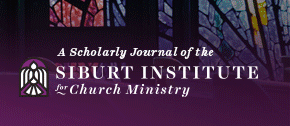Abstract
This paper presents a project in which I led a group of students at a suburban Christian school in experiences that challenged them to be more engaged with those in their community who are experiencing an economic disadvantage. At the outset, the two presenting problems were: (1) a lack of experience with those who are at an economic disadvantage; and (2) a prevalence of troubling attitudes about poverty, namely, ambivalence toward helping people who live in poverty. A lack of concern for the poor is contrary to the teachings of Jesus. In response to this problem, two teachers and I led a group of high school students in a 48-hour experience with an urban ministry to those experiencing homelessness. During this time we participated in a poverty simulation, which involved making meals on meager resources, sleeping in shelter-like environments, volunteering at various ministries, and meeting people who were experiencing poverty and homelessness. I evaluated the efficacy of this project by studying field notes, informal interviews, and the assessment of an outside expert. I concluded that the experience was an effective first step in responding to the problem, but that more needs to be done.
Creative Commons License

This work is licensed under a Creative Commons Attribution 4.0 License.
Recommended Citation
Hensley, James
(2016)
"Reframing Poverty for Christian Students,"
Discernment: Theology and the Practice of Ministry: Vol. 2:
Iss.
2, Article 2.
Available at:
https://digitalcommons.acu.edu/discernment/vol2/iss2/2
Included in
Bilingual, Multilingual, and Multicultural Education Commons, Ethics in Religion Commons, Practical Theology Commons

